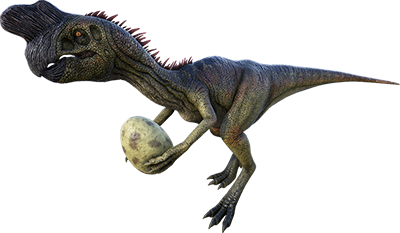 Dododex
ARK: Survival Evolved & Ascended Companion
Dododex
ARK: Survival Evolved & Ascended Companion
Rate Tips
Egg-stealing dinosaur was innocent,
THE rare discovery of a fossil embryo has cleared the name of a dinosaur
called “egg stealer”. Oviraptor, first discovered apparently making a meal of
another dinosaur’s eggs, was, it now turns out, simply trying to hatch its own
offspring.
In 1923, an expedition from the American Museum of Natural History in New
York found the first Oviraptor skeleton on a nest of eggs in the Mongolian
desert. The scientists thought the elongated eggs belonged to Protoceratops, a
plant-eating dinosaur whose fossils were common in the area. They chose the
name Oviraptor because they assumed the animal, a predator with sharp claws
and a parrot-like beak, was trying to eat the eggs when it was caught in a
sandstorm and died.
No one could confirm that a Protoceratops had definitely laid the eggs,
however. The contents of fossil eggs are hardly ever preserved. But in the
latest issue of the journal Science, a team of researchers from Mongolia and
the American Museum report on their discovery of a very similar egg containing
a tiny Oviraptor skeleton, almost ready to hatch. The egg was found 300
kilometres from the site of the 1923 excavations.
The 80-million-year-old embryo is the first found from the group of
dinosaurs related most closely to birds. Like birds, dinosaurs brooded their
young, says Mark Norell of the American Museum.
Advertisement
The same nest contained another curious find – the skulls of two tiny young
carnivores belonging to the same family as the velociraptors, best known as
the terrors of Jurassic Park. It is possible that these small carnivores were
raiding the nest. However, Norell says the absence of any other bones suggests
the skulls “were brought to the nest by adult [oviraptors] who had cleaned out
a Velociraptor nest” and like modern ospreys, brought their catch home to
eat
